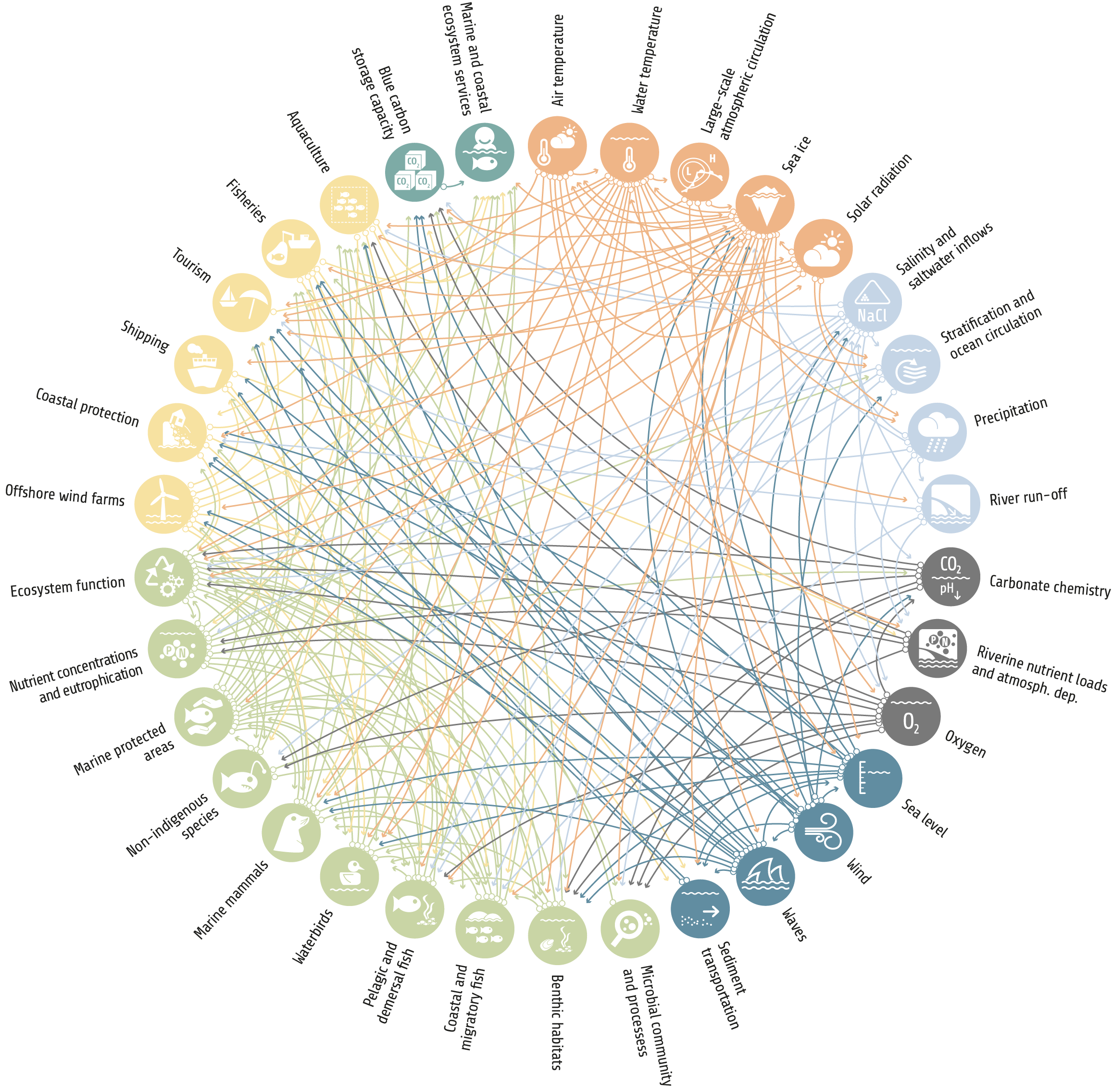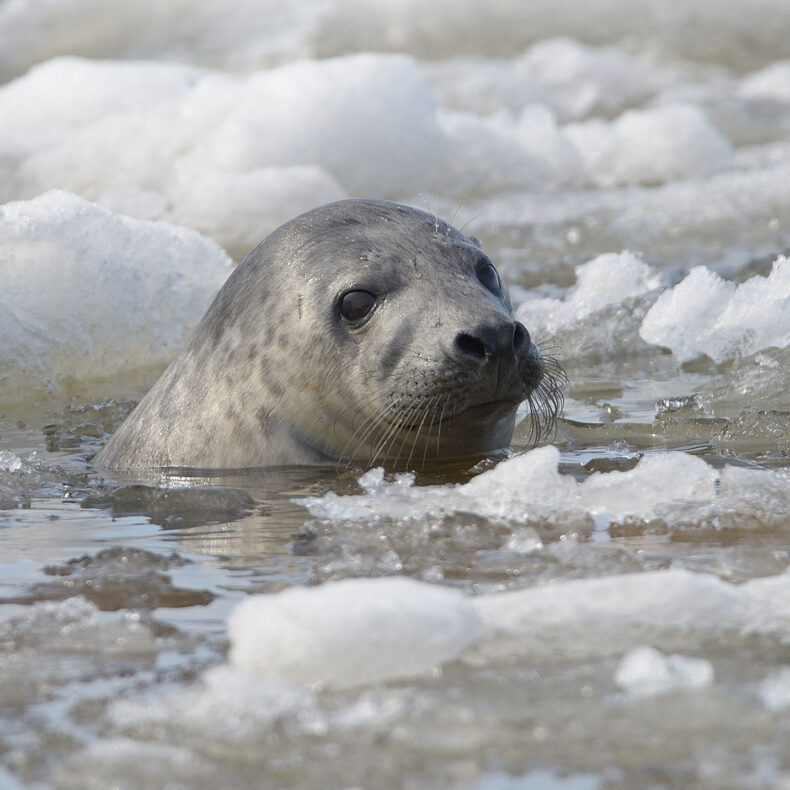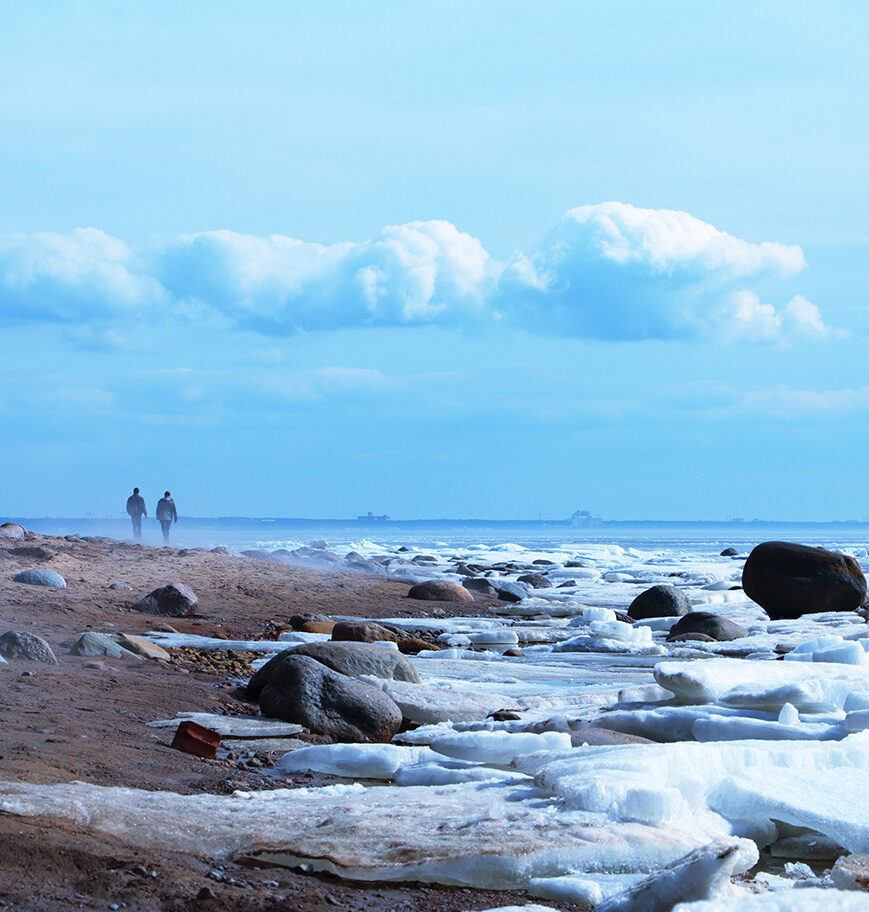CLIMATE CHANGE
How is climate change affecting the Baltic Sea?
Climate change has global impacts on biodiversity and ecosystem health (IPCC 2023), and effects of climate change are also evident in the Baltic Sea today: the water temperature is rising, the ice extent is decreasing, and annual mean precipitation is increasing over the northern part of the region. Ongoing changes in the climate are having significant impacts on the Baltic Sea ecosystem, and this is expected to continue in the near future (HELCOM and Baltic Earth 2021, see also Box 2.1). All these changes affect the sea, its ecosystems and ecosystem services, as well as human activities that depend on these.
The effects of climate change are complex and could differ between parts of the Baltic Sea region (Meier et al. 2022). This complexity is further exacerbated by a system of feedbacks between climatic and non-climatic factors, as well as between different parts of the ecosystem (Figure 2.3). Climate change contributes to the cumulative pressure from multiple environmental and human-induced pressures. The effects of climate change can therefore in some cases be difficult to distinguish from certain human pressures (HELCOM/Baltic Earth 2021).
Work on climate change knowledge in HELCOM
The joint HELCOM/Baltic Earth Expert Network on Climate Change (EN Clime) functions as a coordinating platform to connect leading scientists with expertise on the direct and indirect effects of climate change on the Baltic Sea environment. A key role of the platform is to make this expertise available to policymakers and create a space for closer dialogue. The network aims to ensure that new scientific findings on climate change and its impacts on oceans and seas are visible in HELCOM and find their way into HELCOM decision-making and day to day work. Among other things, the Expert Network produces and delivers scientific products on climate change, such as the climate change fact sheet (HELCOM and Baltic Earth 2021) and supporting material.
Climate change will increasingly impact the Baltic Sea in the near future
The need for stronger actions and more integrated management of human activities is enhanced by climate change, which increases the risks of biodiversity loss in marine and coastal ecosystems. Climate change effects are already evident in the Baltic Sea, and global warming is expected to lead to further hydrological and ecological changes in the near future. For example, climate change is expected to lead to considerable changes in the occurrence and abundance of species due to the effects of increasing temperatures, a decreasing ice cover and possible changes in salinity. This can lead to direct effects on the functions of food webs and ecosystems, such as changes in productivity and resilience. Climate change effects can also interact with other pressures or lead to changes in human activities affecting the sea. The effects of climate change therefore need to be considered in all aspects of management and policy.
Although further research and understanding is strongly needed, this should not function as a barrier to action, as the vast existing knowledge should be used to plan and implement measures. Along with actions to mitigate climate change, priority areas for the Baltic Sea include meeting the nutrient reduction targets of the BSAP, ensuring a sufficient network of marine protected areas and strengthening the natural capacity of Baltic Sea food webs to regulate and resist the negative effects of climate change.
Baltic Sea Climate Change Fact Sheet
The Baltic Sea Climate Change Fact Sheet (2021) provides the latest scientific knowledge on how climate change is currently affecting the Baltic Sea and about what we can expect to happen in the future. A complete yet concise and easy to read publication, the Fact Sheet will help policy makers to include climate change considerations in their work. More broadly, it also seeks to inform the general public about the effects of climate change in the Baltic Sea.
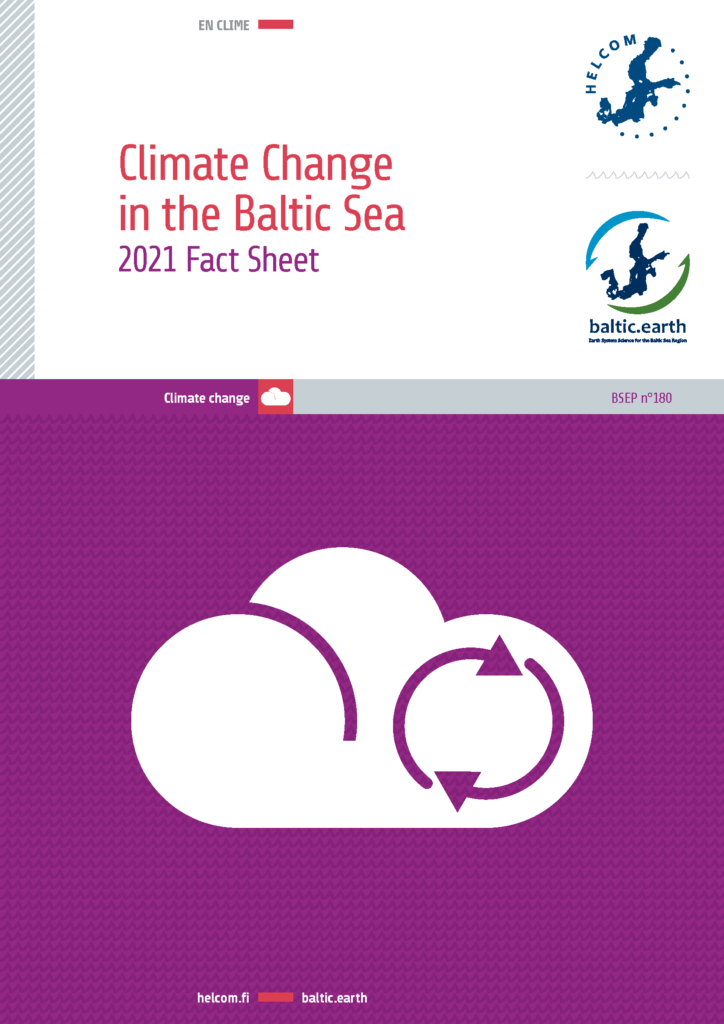
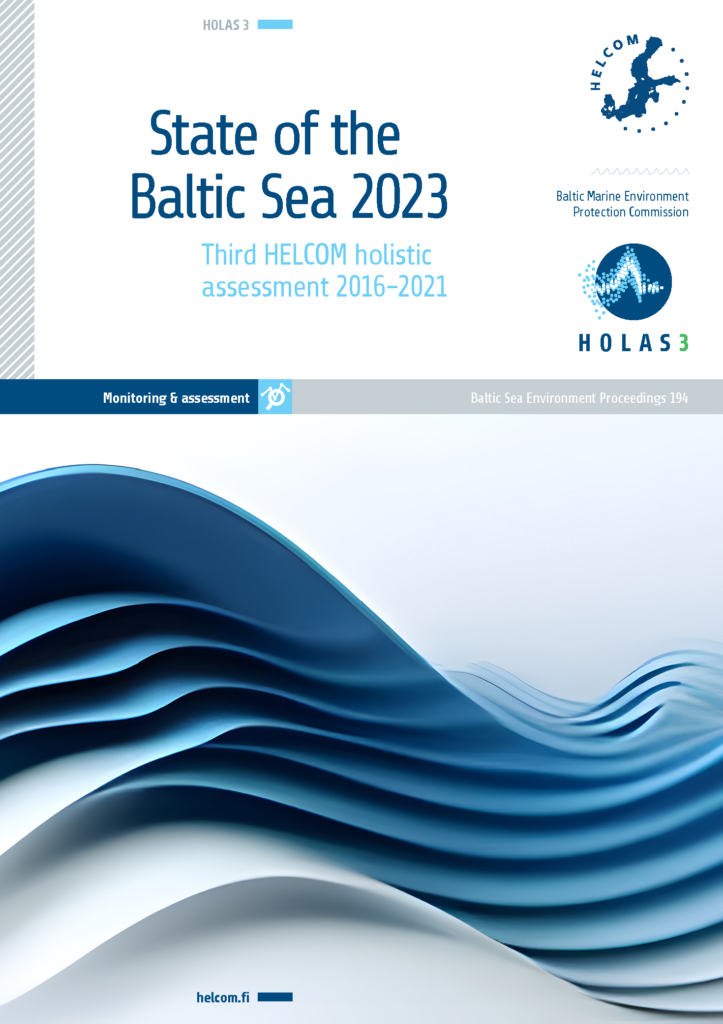
State of the Baltic Sea 2023 — The third HELCOM holistic assessment (HOLAS 3)
State of the Baltic Sea 2023 is a synthesis report that builds on, and integrates, results from a wide range of assessment products produced within the third HELCOM holistic assessment. Its role is to link information from the underpinning assessment products together, thus highlighting the holistic aspects. With this in mind, the summary report focuses on presenting the results and on an in-depth look at why we are seeing these results, providing over-arching context and analysis. The report helps develop a clearer picture of where we are and how things are connected, supporting coordinated and effective measures to strengthen the Baltic Sea environment.

